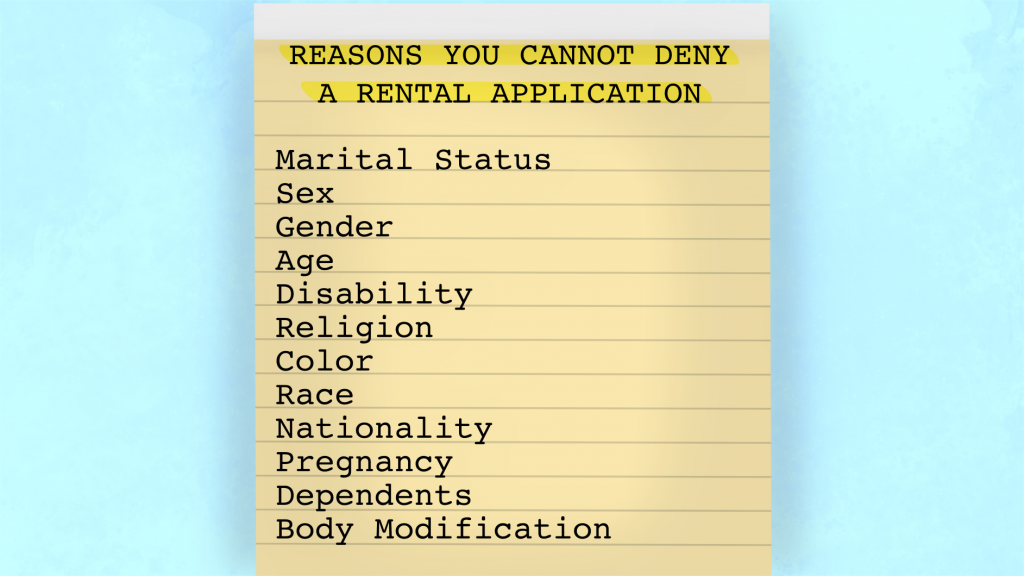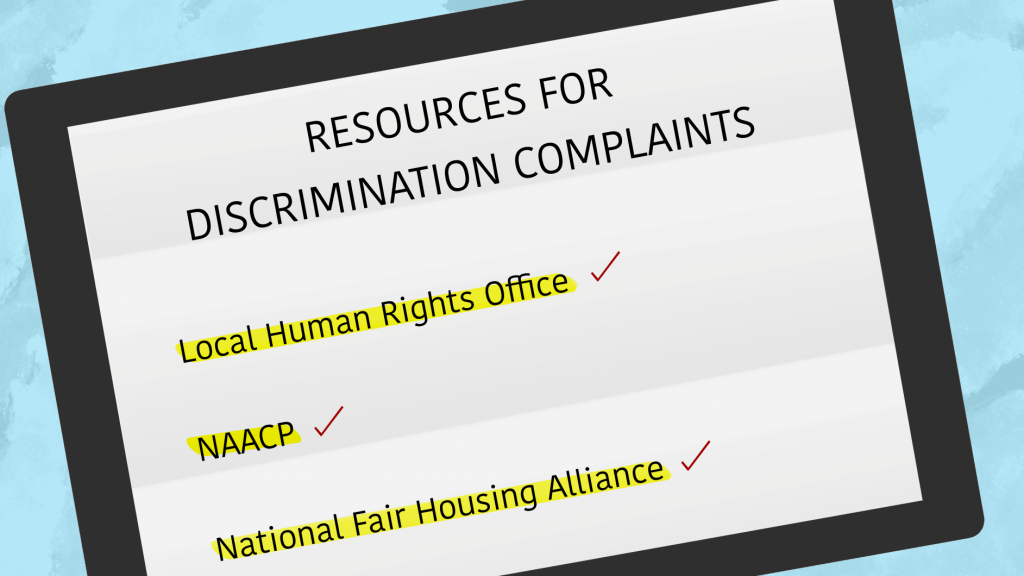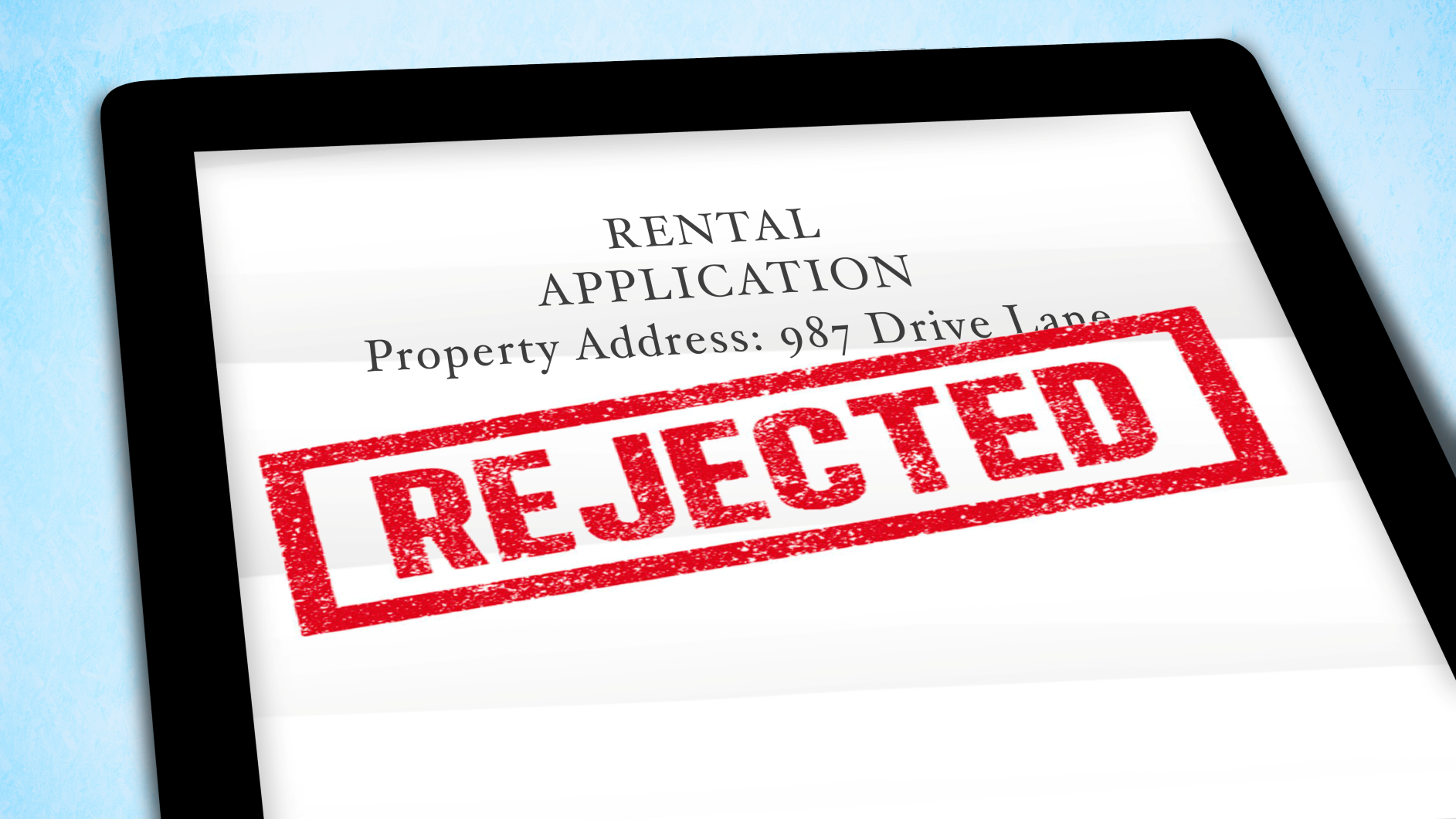The Fair Housing Act became law as part of the Civil Rights Act of 1968, which was a response to widespread demands for equality and justice in the United States. It was passed just days after Martin Luther King Jr., who dedicated a lot of energy to speaking up about a fair housing law, was assassinated.1
So what does the Fair Housing Act mean for you? If you’re a landlord, it means that you need to be aware that there are legal reasons to deny a rental application, but that there are also illegal reasons. Not knowing the difference can end in a lawsuit, so it’s best to fully understand the law before you search for someone to occupy your property. If you’re a tenant, it means that you have rights and the grounds for filing an official complaint if you feel you are being unfairly denied access to certain properties. We’ll take a look at both sides of the coin in this blog.
Table of Contents
- For Landlords: When Can You Reject a Rental Application?
- For Tenants: If an Application has been Wrongly Rejected
For Landlords: When Can You Reject a Rental Application
A landlord cannot deny a rental application on the basis of marital status, sex, gender, age, disability (including past drug addiction), religion, color, race, or nationality. These are considered “protected classes” under the act. An applicant also can’t be denied on the basis of whether she’s pregnant, or whether he or she has kids, or cares for an elderly person. Landlords are also prohibited from practicing arbitrary discrimination, which can include, for example, denying applications from tenants with tattoos.2

Discriminatory practices are taken seriously. In 2020, the Justice Department sued a Housing Authority in Alabama for discriminating against Black applicants in certain complexes. During the lawsuit, Assistant Attorney General Eric Dreiband said: “The United States has made great strides toward Dr. King’s dream of a nation where we will be judged by [the] content of our character and not by the color of our skin. The dream remains at least partially unfulfilled because we have not completely overcome the scourge of racial bias in housing.”3
The first thing to know may seem counterintuitive, but hear us out. Don’t concern yourself with whether an applicant is in one of the “protected classes.” Just focus primarily with whether an applicant can pay rent on time and whether he or she has a history of being a reliable tenant. If you’re going to ask one potential renter a personal question, you should be sure to ask every potential renter the same question.
You can lose the right to rent your place out if you’re found guilty of discriminating against a protected class. “Discrimination” is defined broadly under the law. Refusing to show or rent to potential tenants, charging a higher rent or security deposit on the basis of who you’re renting to, refusing to modify the property to accommodate disabled persons, or even an advertisement that says “adults only” can all potentially qualify.4 However, there are some perfectly legal reasons to deny a rental application. We’ll cover some of them, though this is not an exhaustive list. You’re allowed to reject a tenants for the following:
- Can’t Afford Rent: Remember that the Fair Housing Act prevents discrimination on the basis of marital status, so if you’re prepared to accept one spouse’s income as sufficient for both of them, you’ll have to do the same for two unmarried tenants.5
- Can’t Verify Income: If you don’t have a clear understanding of an applicant’s financial situation, you’re within your rights to deny his or her application.
- Low Credit Score: If a tenant has a lot of debts or a history of going bankrupt, you’ll naturally be less confident he or she will be able to pay rent on time.
- Pets: It’s your prerogative to decide whether or not you want pets in your property, except in the case of service animals.
- Previous Evictions: Since landlords are only legally allowed to evict tenants who violate the terms of their lease agreement, generally a tenant who’s been evicted has been evicted for a valid reason. According to the law, you are allowed to consider this as part of your decision to rent.
- History of Frequent Moves
- Negative Portrayal by a Reference
- Criminal Conviction: You can’t deny someone access to your property because he or she has a criminal record, but if the person committed a crime which constituted a threat to property (drunk driving, burglary) in the last five years, you’re allowed to consider this as part of your decision. Another crime you’re allowed to consider is manufacturing or distributing drugs.
- Lack of Rental History: This doesn’t necessarily warrant denying an application — you could call a tenant’s parents or dormitory mates to be character witnesses, for example, if the tenant has never rented before — but it does, in fact, constitute a legal reason.
- Lies: If your tenant claims to make more money than he or she actually does, this is a valid reason to deny his or her application.
- Drug Use: If an applicant is actively using drugs, you can deny his or her application. However, if he or she is in a drug treatment program and no longer using, it’s illegal to discriminate against him or her. In this case, the addiction falls under the “disability” category and thus becomes a protected class.
- Incomplete Application: If the tenant fails to complete the application, or does not authorize a background check, this is an acceptable reason to reject the application.
For tenants: If a rental application has been wrongly rejected
The Fair Housing Law prescribes your rights as a person seeking out a place to live. If you can prove you’ll be a good tenant, then a landlord isn’t allowed to deny you access to his or her property. A landlord can ask you for any information that will help them to assess whether you’ll be a reliable tenant, and whether you’ll be traceable if you leave town without paying your rent or bills.6 He or she shouldn’t be asking you about a whole lot else.
Steering
“Steering” is a term that refers to the illegal and discriminatory practice of “steering” people of a particular race or group toward or away from housing options based on the demographics of a neighborhood.7 The coronavirus pandemic and the protests of 2020 have increased incidences of this, according to the National Association of Real Estate Brokers. If a real estate professional or landlord is suggesting you search somewhere else, rather than the place you’re expressing interest in, you may have grounds to make a complaint to the Department of Housing and Urban Development.
Reasonable Accommodations
You may also have grounds if you are disabled and a landlord rejects your application because he or she doesn’t want to make “reasonable accommodations” for you, such as installing grab bars in a bathroom or installing a ramp to allow access to an entrance or allowing you to make your own modifications to the property, within reason.8
Remedies

If you feel you’ve been discriminated against, you can file a complaint online at the HUD website. You can also seek assistance with filing a complaint from organizations such as your state or local human rights office, NAACP, or the National Fair Housing Alliance.
Know that it’s illegal for the landlord you’re filing a complaint against to retaliate against you.9 It’s also a good idea to remember that you probably don’t want to be living in a home owned by a landlord you don’t feel comfortable with in the first place.
The legalities and nuances of the Fair Housing Act can be tricky to understand, so if you’re unsure about a particular rental application, it may be a good idea to seek legal advice from an attorney who specializes in housing law.
Sources
- https://www.hud.gov/program_offices/fair_housing_equal_opp/aboutfheo/history
- https://www.avail.co/education/guides/fair-housing-laws
- https://www.justice.gov/opa/pr/justice-department-sues-northern-alabama-housing-authority-and-property-owners-housing
- https://www.avail.co/education/articles/15-legal-reasons-to-deny-a-tenant
- https://www.american-apartment-owners-association.org/property-management/tenant-screening/18-reasons-to-reject-a-tenant-application/
- https://www.nolo.com/legal-encyclopedia/free-books/renters-rights-book/chapter1-2.html
- https://time.com/nextadvisor/mortgages/what-is-racial-steering-real-estate/
- https://www.peoples-law.org/when-refusal-rent-illegal-housing-discrimination
- https://www.hud.gov/program_offices/fair_housing_equal_opp/online-complaint
